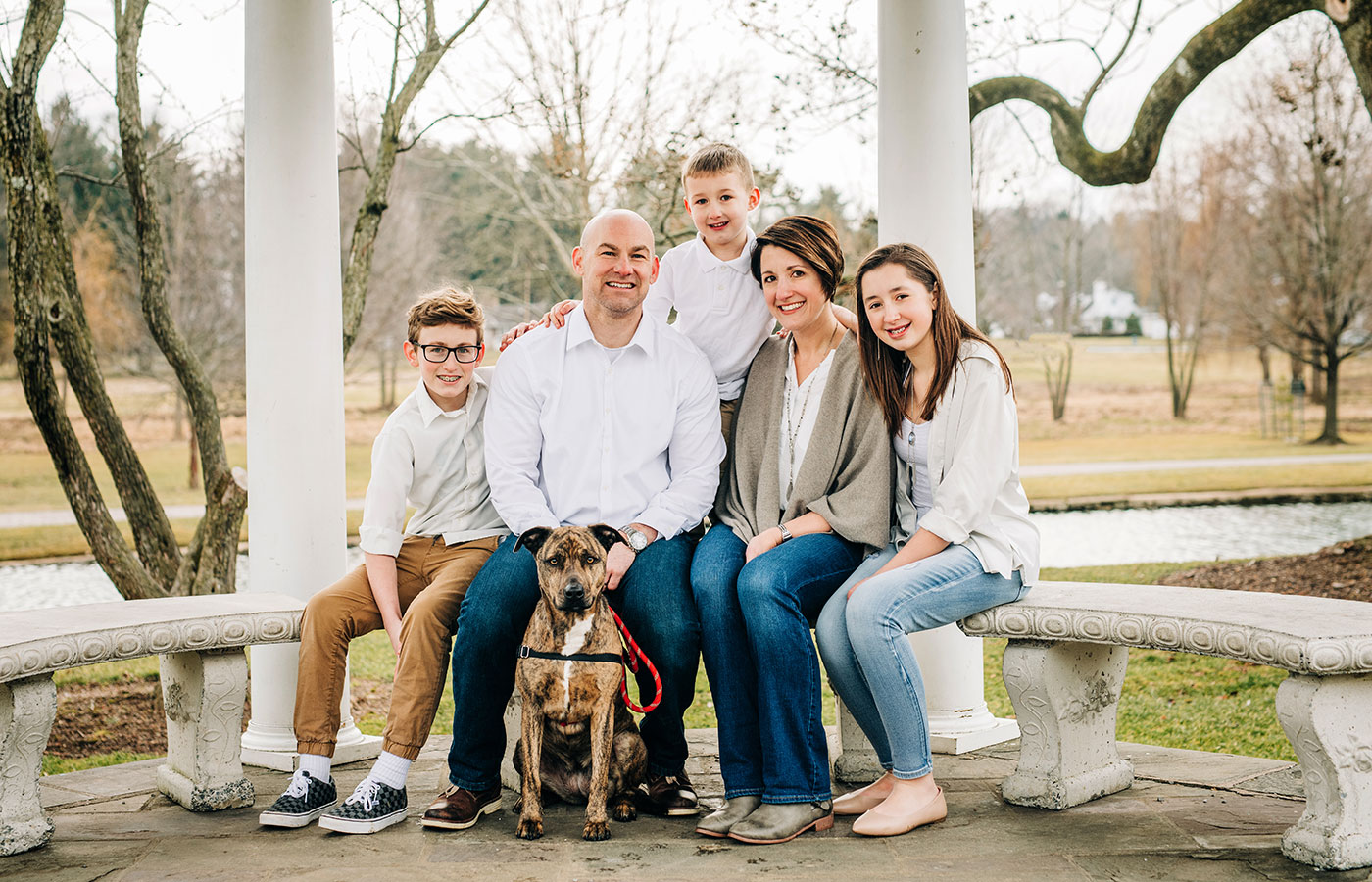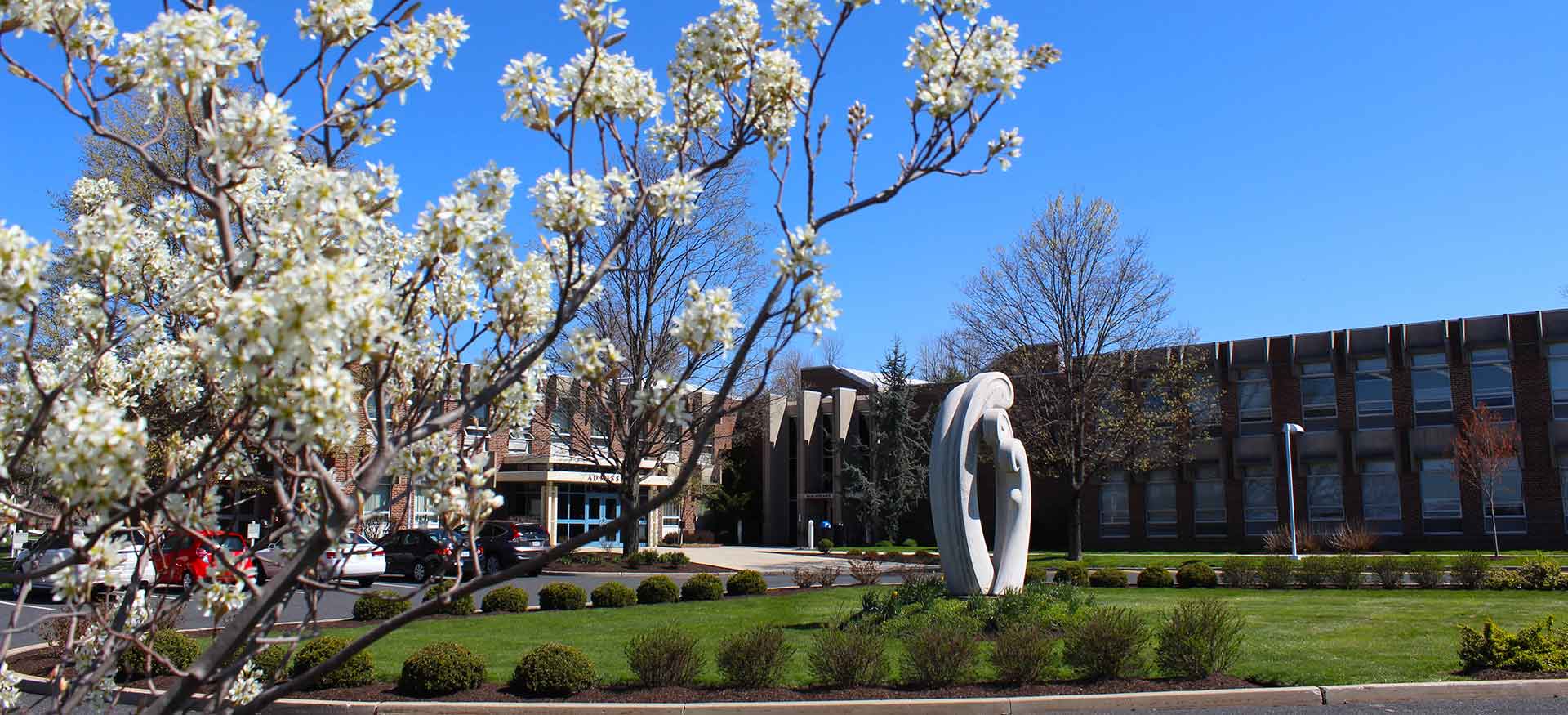DeSales MBA Program Helps Local Doctor Prepare for Pandemic

There was no playbook to prepare local health networks for the global medical crisis that arrived on the doorstep of the United States earlier this year. And so, as cases of COVID-19 began to mount here and across the country, it was up to people like Dr. Jennifer Stephens to create their own plan.
“When it all started to gain momentum, our team was called upon to create real-time solutions that would support and protect the community,” says Stephens, a student in the MBA program and a chief medical officer for quality and patient safety at Lehigh Valley Physician Group (LVPG), a subsidiary of Lehigh Valley Health Network that’s made up of about 1,500 doctors and clinicians representing dozens of medical specialties.
Top priorities included setting up COVID-19 testing sites across the region; figuring out how to process the large wave of tests coming out of those sites; deciding which LVPG locations should temporarily close as a safety precaution; and changing the way the health network offered everyday care.
“We needed to flip our healthcare delivery system into a virtual care model overnight,” Stephens says. “The first six weeks of this was a point in my career that I will never forget. I’ve never experienced anything quite like it; we compressed years of work into those few weeks.”
At the peak of the pandemic, LVHN was operating more than a dozen regional testing sites across several counties and had converted care to a 75 percent virtual model, far exceeding performance across the country. Stephens credits her team at the health network for the success.
“Everyone had a singular focus, which was flattening the curve and caring for our community,” she says. “That focus went from senior leadership all the way to our front-line staff.” Stephens says she was also buoyed by the skills she was honing as a student in DeSales University’s MBA program. She just happened to be enrolled in an executive skills class as the pandemic picked up steam.
Stephens was called upon to apply new classroom learning to real-life practice, especially when it came to conveying difficult news to her fellow clinicians. “Each of the different facets of the training program came out,” she says. “I was learning what things to say, and how to frame messages—the content as well as the delivery.”
In fact, she believes the curriculum—with a concentration in healthcare administration—afforded her many opportunities to flex her management muscles in new ways. “Every class I attended, it was perfectly made for what I was going through professionally. It was well-timed for what I was experiencing and strengthened my leadership when I needed it the most.”
It’s no secret that medical doctors must undergo many years of instruction both in the classroom and in the clinical setting before they earn those highly coveted white lab coats and stethoscopes. So why would a well-established physician with those grueling training days firmly in the rear-view mirror want to return to the higher learning setting?
Stephens says she was looking to learn more about the financial and business side of healthcare—“I wanted to understand all the variables and nuances involved to ensure I was the strongest clinician leader I could be.”
Stephens grew up outside of Chester County. She earned her bachelor’s degree from Ursinus College in Collegeville in 1999 before moving on to the Philadelphia College of Osteopathic Medicine. An internship in 2003 and subsequent residency brought Stephens to Lehigh Valley Health Network and to the Lehigh Valley, and she’s been here ever since. “I love the area,” she says. “It wasn’t too far from home, and a great place to raise a family.”
There’s always been an administrative component to her professional career, starting with her time as chief medical resident at Lehigh Valley Hospital in 2007. Throughout the course of her career, she has held a variety of leadership roles within the realm of graduate medical education, ambulatory healthcare, quality improvement, and value-based care management.
It’s an impressive résumé for sure, but, in 2017, before stepping into her current role as chief medical officer, Stephens was ready to take it to the next level. She wanted to be the best leader she could be and fill in some of the blanks in areas outside of her medical expertise. “They don’t teach us much about business in medical school,” she says.
Stephens had heard positive things about the DeSales MBA curriculum from her boss, Dr. Michael Rossi M’11, the chief physician executive of LVHN and president of LVPG, as well as from fellow clinicians who had graduated from the program. The school’s strong religious roots also appealed to her.
But the biggest selling point may have been the program’s pliability for students seeking a non-traditional higher learning experience. “I needed the flexibility of having asynchronous classes,” Stephens says. “As an adult learner, busy professional, mom, and wife, to me that’s one of the most critically important things.” Stephens took one flex class; the rest were all completed virtually.
Some prospective students might question whether they’ll reap the same benefits from virtual learning as they would from a typical, in-person classroom setting. Stephens’ advice? “It’s all about what you put into it.”
She also credits DeSales’ faculty with cultivating a lively learning experience. “The professors, they’re dynamos,” she says. “They’re just so good at this. They have figured out how to keep the students engaged. The courses are professional, robust, and enjoyable.”
Stephens is a married mother of three children, ages 14, 13, and 6; she credits her husband, Wayne Stephens, with helping her stay grounded amidst pandemic-planning, family and professional demands, and juggling her MBA course work.
All of that hustle pays off in November, when Dr. Jennifer Stephens officially becomes Dr. Jennifer Stephens, MBA. And while finding free time over the past three years may have been difficult, Stephens says she’s relished the journey. “I would do it all over again. It was one of the best career decisions I ever made.”





